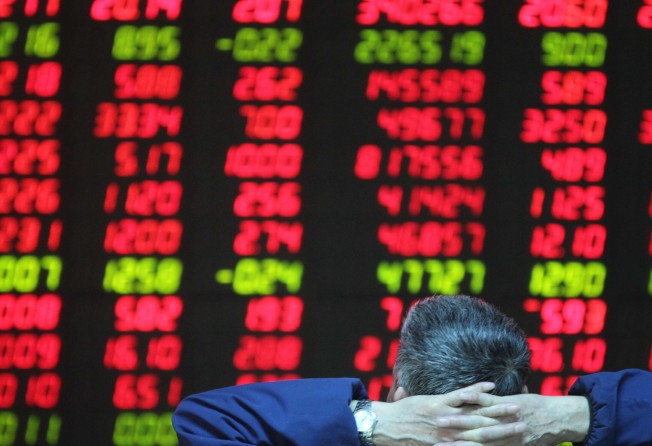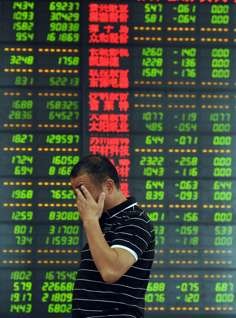MSCI rejection shows China’s market credibility still in question
Jury is still out on whether the A-share market is now functioning better after a year of hard knocks

The third rejection of China’s A-shares by global share index compiler MSCI coincides with the first anniversary of the beginning of the country’s worst ever stock market crash, which wiped about $4 trillion worth off the market’s value.
Those weeks of turmoil last summer shattered the confidence of many of the country’s 100 million retail investors, but arguably more telling, it exposed the limited capabilities of Beijing in managing its own financial markets.
Twelve months down the line, and now facing yet another rejection by MSCI, more questions than answers remain over the credibility and confidence of China’s yuan-dominated, and largely-closed onshore stock market.
Top of the list for many is a relatively simple one: who was really most responsible for that market crash?
There have been high-profile sackings, including the securities regulator chief, and arrests of executives on charges of insider trading. Trillions of state funds have been ploughed into propping up stock prices.
But all that has largely failed too generate anything like a recovery.
The jury is still most definitely out on whether the A-share market is now functioning better than a year ago, and whether enough funds have been spent on not only ironing out the glitches in its most vulnerable areas, but finding the right way ahead.
“The re-thinking process is still going on,” said Zuo Xiaolei, a researcher in the Counsellors’ Office at the State Council, the cabinet, who has decades of experiences in China’s securities market.
“For instance, should China be rushing so fast to introduce new products and derivatives? New tools often designed to hedge risks, in practise do little more that worsen market swings.”
MSCI said it deems China’s onshore stock market, with its market capitalization of $8 trillion, as not open enough for foreign investors — and that forms the basis of its rejection of including A-shares in its emerging market indices.
Chin Ping Chia, its head of research for Asia Pacific, said at a teleconference, specifically, that China has to remove the 20 per cent monthly repatriation limit in a quota system for foreign investors and must be clearer on implementation of new trading suspension treatment.
But even more embarrassing for Beijing is that its much-smaller peer Pakistan has been added to the index after it managed to carry out a number of key reforms to satisfy the requirements of MSCI.
The latest rejection is a bitter blow for many, who had been hoping an inclusion would bring much-needed fresh funds and confidence into the bruised market, which has now lost about 45 per cent from last year’s close of 5,166 on June 12.
A Chinese Securities Regulatory Commission spokesman insisted in a statement on Wednesday morning that he considered any international stock index excluding A-shares as “incomplete”, and that the MSCI decision will do nothing to alter China’s “capital market opening-up and reform process”.
The benchmark Shanghai Composite Index index gained 1.58 per cent on Wednesday after a low opening.
China’s A-share markets were created in the early 1990s as platforms to help the country’s struggling state-owned enterprises.
Deng Xiaoping, the former paramount leader, said in 1992 that Beijing would retain full control over the fate of the stock market.
“We can close it [the stock exchange] if it doesn’t work,” he said then.
But two-and-half decades on, the country’s stock market still remains subject to heavy state sanctions.
When stocks started to tumble last June, the regulator announced a suspension of new initial public offerings, the eighth time Beijing had put the brakes on those.

“The Chinese stock markets still fall amazingly short” in terms of “transparency, openness, and fairness” in the regulatory system, thinks Scott Kennedy, a director of the Project on Chinese Business and Political Economy at the Center for Strategic and International Studies, a Washington-based think-tank.
“As long as raw fundraising and industrial policy goals dominate Beijing’s economy policy, it will be almost impossible to have genuinely market-oriented stock markets in China.”
Chinese stock prices started to rally about two years ago, even as the economy started to slow.
But bubbles were created by leveraged borrowing and even the loyal state media regularly referred to “a reform-driven bull market”.
The cracks in that market have remained unfilled since mid-June last year.
“Beijing is learning one lesson – it knows now that bubbles are very dangerous,” said Shen Jianguang, the chief economist with Mizuho Securities Asia Ltd.
“You can see this from its handling of the property-price gain in the first quarter this year. It acted immediately to curb price bubbles in some top cities,” said Shen.
“But it is taking much longer for Beijing to learn a second lesson — namely that it has to reduce state intervention in the market.”
In a close-door speech in January but published last month, President Xi Jinping told China’s senior cadres to update their skills, highlighting the stock market turmoil as an example.
“In recent months, a slew of major accidents happened regarding production safety, the stock market and internet finance, ringing alarm bells one after another,” Xi said in a transcript published on the official People’s Daily.
“You shouldn’t pay your tuition in vain, you have to learn from mistakes and avoid making the same mistake again and again.”
Tim Condon, Singapore-based head of Asia research at ING, considers one thing officials may have learnt is that the market “is a bit like electricity”.
“It’s very powerful – if you lose control of it, it will kill you.”
Condon added that no economy is immune to policy mistakes, and China’s A-share market may still “out-perform” — but only if the right policies are in place and its economic situation stabilises.